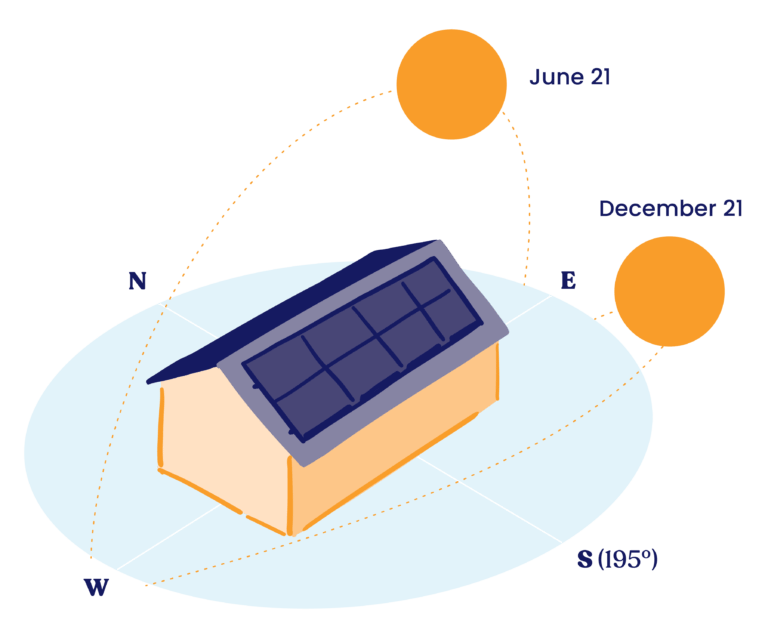
New Hampshire is experiencing a dramatic rise in utility electricity rates; many homeowners have had their electric bills double and are looking into solar power as a better, more viable solution. ReVision Energy has seen a huge increase in people interested in solar, which is great news for our planet and communities. However, this also means it's taking us longer than usual to get back to every interested homeowner. We're still committed to speaking with everyone about their potential solar journey in a meaningful, educational way.
To prepare our future Solar Champions (like you!) for the solar journey with our team, we've compiled a guide that gives you an overview of solar in New Hampshire, explains what makes our employee-owned company different, and helps you determine if solar is right for you and your home.
New Hampshire Solar Overview
Electricity rates in New Hampshire have spiked dramatically during the summer of 2022; our rates are now the 2nd highest in the country, after Hawaii. Like much of New England, New Hampshire is reliant on natural gas, and several external factors, such as the war in Ukraine and extreme weather events in gas-producing states, have disrupted the supply chain for natural gas. Major utilities in New Hampshire have had to increase their rates to profit, and the cost of electricity will only continue to increase as more factors threaten the supply of gas and other fossil fuels.
Yes! Aside from being a more sustainable, less damaging method of producing power, solar power is a great economic opportunity that can lower your cost of electricity and offer a strong return on your investment. When you factor in solar’s significantly reduced equipment costs and reliable performance, the average return on investment of solar energy ranges from 8% to 12% per year. Learn more about solar’s economic opportunity.
Where to start…aside from being our strongest solution to the climate crisis, solar offers plenty of environmental and economic wins for you, your family, and your community. The sun’s power is a clean, infinitely abundant resource, accessible to everyone, making solar energy the fastest growing electricity source in the US. Solar is also the least expensive source of electricity on the planet. Going solar increases your property value while also decreasing electricity rates for you and your neighbors (even if they don’t use solar).
Transitioning to solar is the first step in regaining full control over your home’s energy needs. Thanks to continually evolving technology, you can use the abundant power of the sun to heat and cool your home, store power for backup in case of an outage, and even charge your car.
Every solar homeowner and business owner can receive a 30% tax credit on their solar installation until the end of 2032. This means you will get 30% of the total installation cost back when you file your taxes.
Starting January 2023, you can also receive a 30% tax credit from the cost of heat pump and heat pump water installations, as well as battery storage and EV charging projects.
Visit our complete guide on the federal tax credit for more information.
Yes, NH has net metering. When the sun is shining, your solar system is generating clean solar energy, which is used in real time to power your lights, refrigerator, TV, etc. Any excess energy produced goes out to the electric grid, where it’s used to power other homes in your neighborhood. With net-metering, the utility provides credits to the homeowner for that exported energy, which the homeowner can then use during times of low production (i.e. nighttime). Typically in New Hampshire, most homes over-produce during the summer, so you will stock up on credits that you can then use during the winter when the days are shorter.
Customers who net meter have a special meter which measures the difference between the electricity provided by the local utility or competitive energy supplier and the electricity produced by an on-site renewable energy source. The meter registers the flow of electricity in both directions: from your local utility or competitive energy supplier to your home and from your renewable energy source back out to the utility distribution system. The net amount is used to calculate your monthly electric bill. In New Hampshire, residential net metered projects are credited 100% of energy supply and transmission charges, but only 25% of distribution charges.
You can either pay for the project upfront, or take out a solar loan. Similar to any other home-related loan, solar loans enable a homeowner to finance a home solar project by borrowing money from a lender. Unlike leasing (covered below), a solar loan grants you ownership of an asset (solar panels) that provide you with significant long-term savings, even as you pay off the loan. Solar loans also grant you access to several financial incentives, such as the 30% federal tax credit and RECs. With certain loan options you can actually swap out your monthly electric bill for a loan payment, enabling you to go solar at no upfront cost.
ReVision doesn’t offer leases to our customers, since they don’t grant the full benefits and return of a solar investment. When you sign a solar lease, you are renting your solar panels from the company who installed them. You cannot take advantage of the federal tax credit with a lease, and the lease’s monthly payment will escalate over time. Additionally, it’s very difficult to sell your home with a solar lease because prospective buyers are hesitant to take over the lease. We strongly encourage you to own your system if possible.
Solar panels are a thing of beauty; they can produce clean, solar energy for your home from the rooftop, in your backyard, or even in a field far away. In New Hampshire, homeowners can install solar on their roofs or on the ground on their property, as long as the array receives plenty of unrestricted sunlight. Our Solar Design team will work with you to determine which installation is best for your needs. Learn more about rooftop vs. ground mounted solar.
 Enough about the world-changing benefits of solar — let’s talk about YOU. There are several factors we look at when planning a solar project for a customer, including your location, your energy goals, your home and property, and your financing preferences. Here are some questions to consider while you prepare for a chat with our Solar Advisors:
Enough about the world-changing benefits of solar — let’s talk about YOU. There are several factors we look at when planning a solar project for a customer, including your location, your energy goals, your home and property, and your financing preferences. Here are some questions to consider while you prepare for a chat with our Solar Advisors:
What type of home do you live in?
Your home is a huge factor in determining whether you are a good fit for solar, as well as whether you own or rent your home. It is very difficult to install solar panels on your home if you don’t own the house, building, or property on which you live. Similarly, if you live in a multi-family property, apartments, or a condo building, it may be difficult to take advantage of solar. Lastly, if your home is very old or if it needs certain types of renovation or remodeling projects in the future, a rooftop solar array might not be the best option to reduce your energy bill.
Is your roof ideal for solar?
We consider several factors when determining whether a roof is a good option for solar. We encourage you to consider the following questions and gather any information you can to help our evaluation process:
-
 How old is your roof? Since solar systems last for three decades, if your roof is near the end of its lifetime it’s worth replacing it before installing solar. If you will need a new roof in the next 5 years, we recommend re-roofing first.
How old is your roof? Since solar systems last for three decades, if your roof is near the end of its lifetime it’s worth replacing it before installing solar. If you will need a new roof in the next 5 years, we recommend re-roofing first. -
What material is your roof? You can install solar panels on most types of roof material, with a few exceptions. It’s very difficult (nearly impossible) to install solar on slate and wood roofs because they are so brittle, and we typically avoid corrugated metal roofs because of installer safety concerns.
-
How big is your roof? What shape is it? Do you have an open roof that’s free of obstacles like vents, skylights, and chimneys? Or is your roof uniquely-shaped with dormers and other obstructions? Large, wide roofs are best for maximizing your solar system, but even with limited space, you might be able to install a smaller number of high-efficiency panels to produce as much power as possible with the available space.
-
 Does your roof experience a lot of shading? Ideally, we like to see a shade-free solar ‘window’ between 9am-3pm, year-round. When evaluating your site, a solar professional will use a tool such as a SunEye or Solar Pathfinder. These tools take a fish-eye photo of the open sky, taking trees and other obstacles into account, and then super-impose the sun’s arc (adjusted for longitude) onto the open sky photo. The results can be interpreted by software to develop a percentage figure of available solar access at a site; generally greater than 80% is required but we prefer to see access that is 90% or more.
Does your roof experience a lot of shading? Ideally, we like to see a shade-free solar ‘window’ between 9am-3pm, year-round. When evaluating your site, a solar professional will use a tool such as a SunEye or Solar Pathfinder. These tools take a fish-eye photo of the open sky, taking trees and other obstacles into account, and then super-impose the sun’s arc (adjusted for longitude) onto the open sky photo. The results can be interpreted by software to develop a percentage figure of available solar access at a site; generally greater than 80% is required but we prefer to see access that is 90% or more. -
What angle is your roof tilt? As a general rule of thumb, anywhere between 30 to 45 degrees is the optimal tilt (roof angle) for most solar systems. Luckily, that’s the most commonly built roof in the U.S. Panels that are installed on a steep roof generally produce less electricity and are more difficult to install, and panels on a flat roof might require more seasonal maintenance.
-
What direction does your roof face? Any roof facing between Southeast and Southwest is great for solar. If you want to get scientific, use a compass or compass smartphone app to see which direction your roof faces. The perfect solar orientation in New England is 195 degrees (15 degrees West of due magnetic South on a compass, also known as ‘true south’) but any orientation between 150 and 240 degrees is within 10% of perfect.
Why go solar with ReVision Energy?
ReVision is a mission-driven, 100% employee-owned solar company, consistently ranked the #1 solar installer in New Hampshire. We are a New England-based Certified B Corp, committed to leading our communities to a stronger, more just, clean energy future. Our team of dedicated solar professionals is on a mission to change the world with solar energy, and we hope you’ll join us.
-
We’re Experienced, Full Service Solar Installers
Since 2003, we’ve grown from two co-founders in a garage, to over 350 dedicated employees across five locations in Maine, New Hampshire, and Massachusetts. We’ve built clean energy projects all over New Hampshire since 2010, and have gained a deep track record of experience working on every kind of solar installation imaginable. -
We’re Named New Hampshire’s Best
We are consistently ranked the #1 solar installation company in New Hampshire. Aside from working with homeowners all over the Granite State, ReVision frequently partners with towns and cities in New Hampshire to build large scale projects that bring the financial and environmental benefits of solar to local communities.
-
We’re Powered by Incredible People
ReVision is fortunate to have an outstanding team of committed employee-owners creating success at our five locations. While we come from a wide variety of backgrounds, our unifying connection is a desire to help New Hampshire communities transition to clean, solar power and gain equitable energy independence.
-
We’re Employee-Owned
Every person who works at ReVision operates with an “owner” mindset and receives the benefit of equity built over time. Employee ownership also means we’re built for the long-haul — other solar installers may come and go, but we’ll be around to support and service your project for decades to come.
-
We’re a Certified B Corp
Our commitment to building a better future for people and the planet isn’t just good for business; it is our business. We’re proud to have certified at a 125.9 rating, more than double the rating of the typical American business. We’re also rated “Best for the World” in three categories and rank in the top 5% of all B Corps globally.
